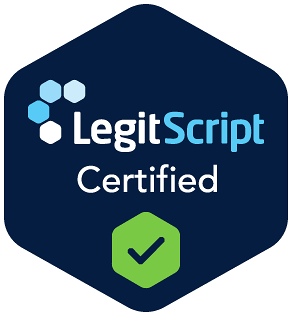Language is important. How we see things, their importance, and their influence is directly connected to what we name them.
Where addiction is concerned, the stigma of the disease is often enough to keep a person from seeking treatment. Admitting to struggling with addiction means a person is akin to putting themselves at risk of losing their job, their family, the respect of their community, and more.
Even though it is a disease, the possible disgrace of being labeled an “addict” is a heavy burden. This one reason to begin to change our language.
Beyond that, the better we define addiction, the better we can treat it and make a difference in the lives of everyone affected.
Accurate Definition
The American Psychiatric Association (APA) compiles the DSM, which is the official guideline for all mental disorders (the current one is the DSM-5). In 2013 they began using the term Substance Use Disorder (SUD) to better name and define the disease of addiction. The APA didn’t make the name change simply to revise semantics. The description is intended to provide a more accurate definition of what users are struggling with.
There are eight specific categories of substance use disorder, these include the use of marijuana, opioids, alcohol, inhalants, stimulants, depressants, hallucinogens, and even tobacco. The actual diagnosis of the disorder comes after a thorough and careful examination of a person and an assessment of their symptoms.
What Constitutes Substance Use Disorder?
A doctor must confirm the presence of specific issues that indicate a serious disorder that requires equally serious treatment. There are 11 symptoms are examined to make a reliable diagnosis of the disorder. The presence of at least two of these symptoms indicates a substance use disorder. The severity is graded: mild, moderate, or severe.
Mild: The presence of 2 to 3 symptoms.
Moderate: The presence of 4 to 5 symptoms.
Severe: The presence of 6 or more symptoms.
The Symptoms
- 1. Taking the substance in larger amounts or for longer than you intended
- 2. Wanting to cut down or stop using the substance but not being able to do it
- 3. Spending a lot of time getting, using, or recovering from use of the substance
- 4. Cravings and urges to use the substance
- 5. Substance use severely impacts your responsibilities at work, home, or school
- 6. Continuing to use even when it causes problems in social situations and personal relationships
- 7. Giving up or greatly reducing important social, occupational, or recreational activities in preference to substance use
- 8. Using substances again and again even when it causes dangerous situations
- 9. Continuing to use even when you know you have a physical or psychological problem that could have been caused or made worse by the substance
- 10. Needing more of the substance to get the effect you want (tolerance)
- 11. Development of withdrawal symptoms, which can be relieved by taking more of the substance
Major Issues
Taking the above list into consideration, it is pretty clear how substance use disorder completely devastates a person’s life (and the lives of those close to him or her). Marriages, friendships, and business relationships can suffer dramatically when a person succumbs to addictive behavior. The individual could even slip into a life of isolation separating him/herself from others as substance use takes precedence over everything else.
Physicians look at numerous behavioral displays to determine if the actions fall under the established criteria. Someone whose substance use contributes to consistently missing workdays, engaging in risky behavior, or unable to function because of substance use likely has a disorder.
Impaired control might be the most noticeable to family members. Impaired control refers to when the user wants to quit or reduce his/her consumption but is not capable of doing so. A preoccupation with drug or other substance use overcomes all other desires and wants. When this happens, it may seem that a loved one has become a completely different person.
Away From the Stigma
The important thing to remember is that drugs and alcohol change the brain. This is why it can be classified as a disease. Someone with a substance use disorder is not a bad, lazy, or unlawful person. Drugs and alcohol manipulate the brain’s structure and how it works. The person is in there, but their life is completely influenced by the effects of this disease. And treatment is absolutely necessary for any kind of recovery to be possible. However, many times people with addictions are too ashamed or afraid to reach out for help.
SoCal Detox steps into this space with the first crucial step to help you or your loved one. With us, there is no judgment, only a strategy and specific care to help you take the steps towards lasting recovery. When you come to us for help, we are able to assess the degree of your disorder and guide you through all the aspects of addiction recovery.
If you believe you or a loved one is suffering from substance use disorder, please call us. One of our addiction specialists will offer an immediate assessment and help you understand what your next step should be. Call today: 888-590-0777.





